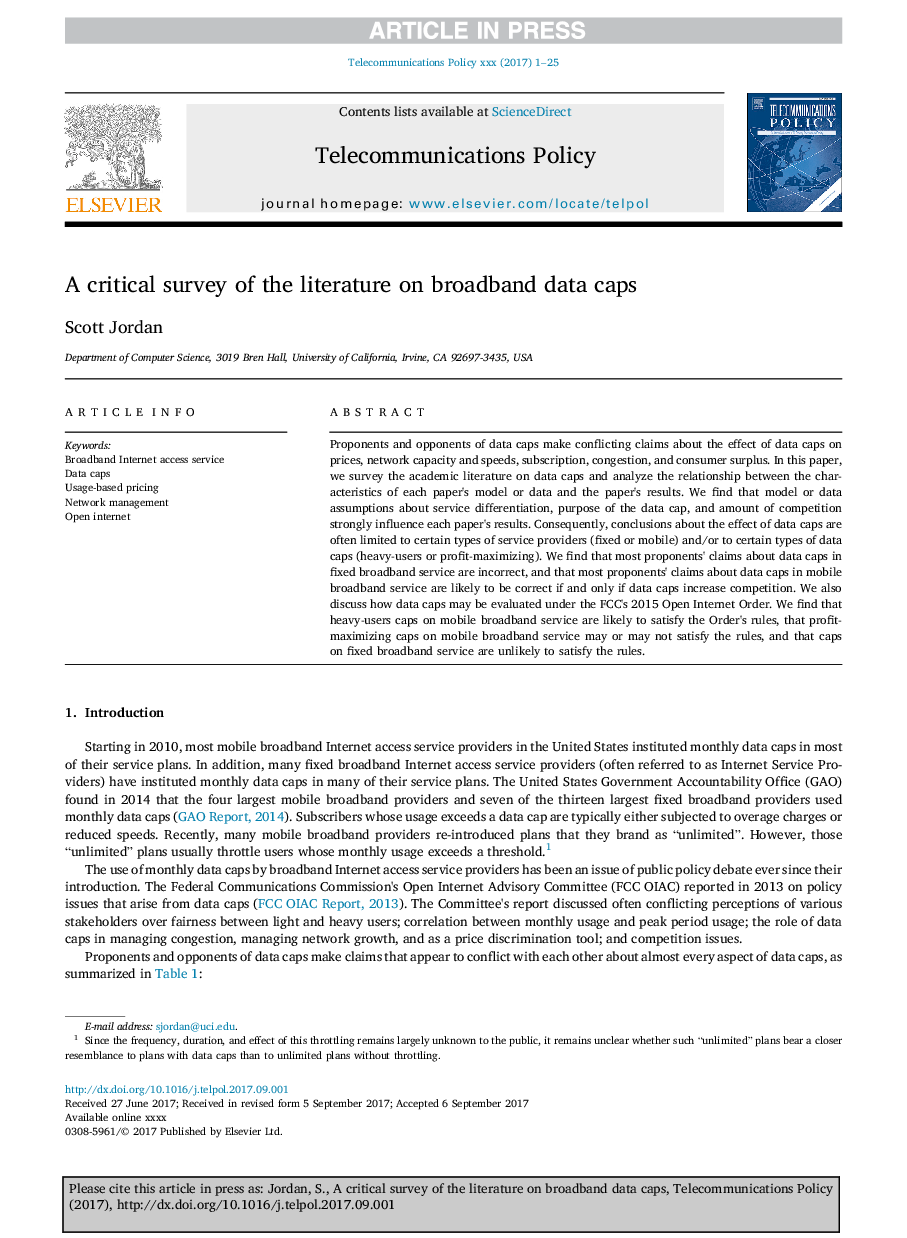| Article ID | Journal | Published Year | Pages | File Type |
|---|---|---|---|---|
| 6950355 | Telecommunications Policy | 2017 | 25 Pages |
Abstract
Proponents and opponents of data caps make conflicting claims about the effect of data caps on prices, network capacity and speeds, subscription, congestion, and consumer surplus. In this paper, we survey the academic literature on data caps and analyze the relationship between the characteristics of each paper's model or data and the paper's results. We find that model or data assumptions about service differentiation, purpose of the data cap, and amount of competition strongly influence each paper's results. Consequently, conclusions about the effect of data caps are often limited to certain types of service providers (fixed or mobile) and/or to certain types of data caps (heavy-users or profit-maximizing). We find that most proponents' claims about data caps in fixed broadband service are incorrect, and that most proponents' claims about data caps in mobile broadband service are likely to be correct if and only if data caps increase competition. We also discuss how data caps may be evaluated under the FCC's 2015 Open Internet Order. We find that heavy-users caps on mobile broadband service are likely to satisfy the Order's rules, that profit-maximizing caps on mobile broadband service may or may not satisfy the rules, and that caps on fixed broadband service are unlikely to satisfy the rules.
Keywords
Related Topics
Physical Sciences and Engineering
Computer Science
Information Systems
Authors
Scott Jordan,
